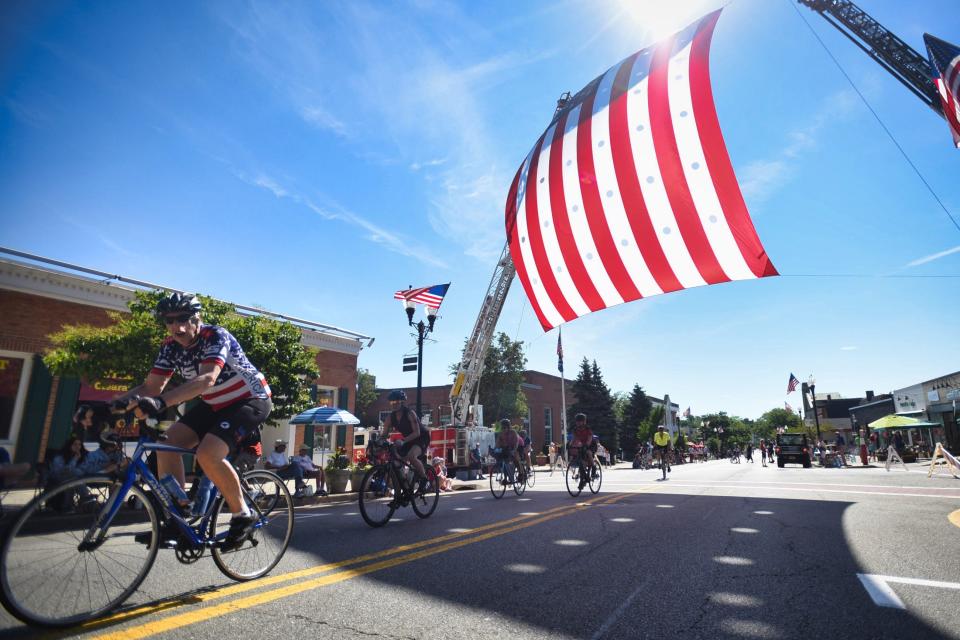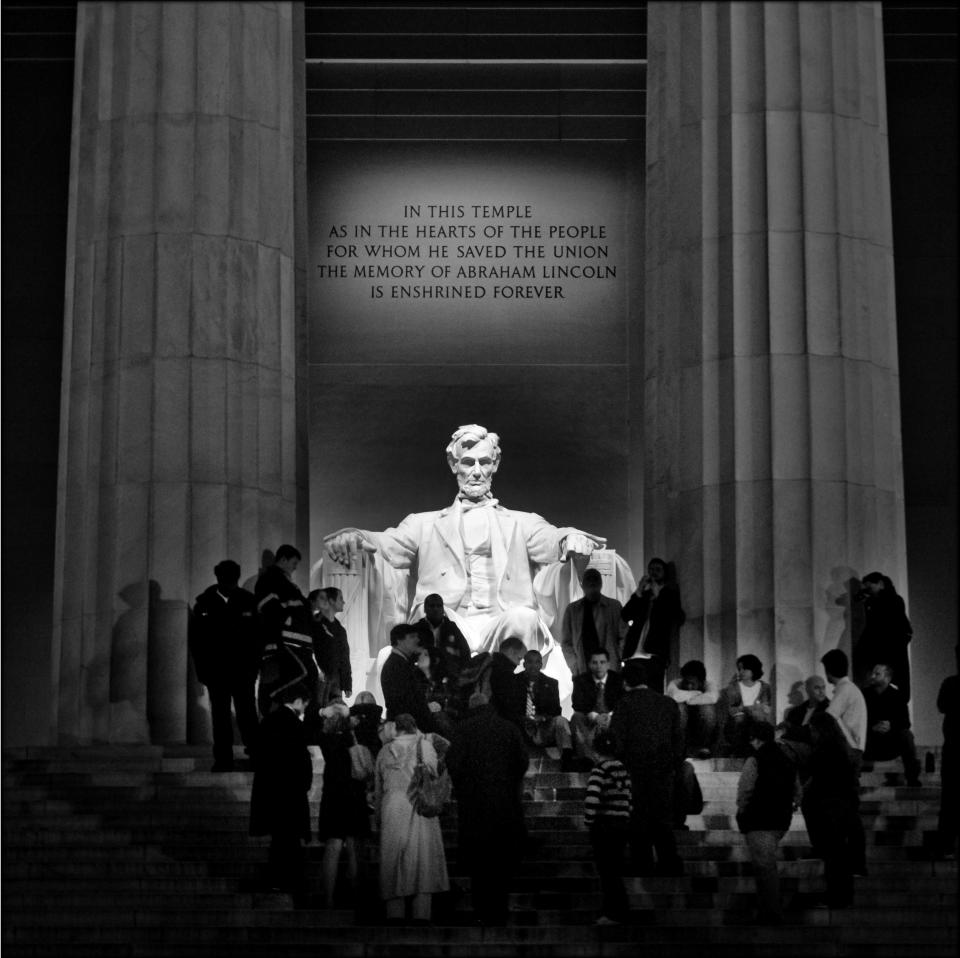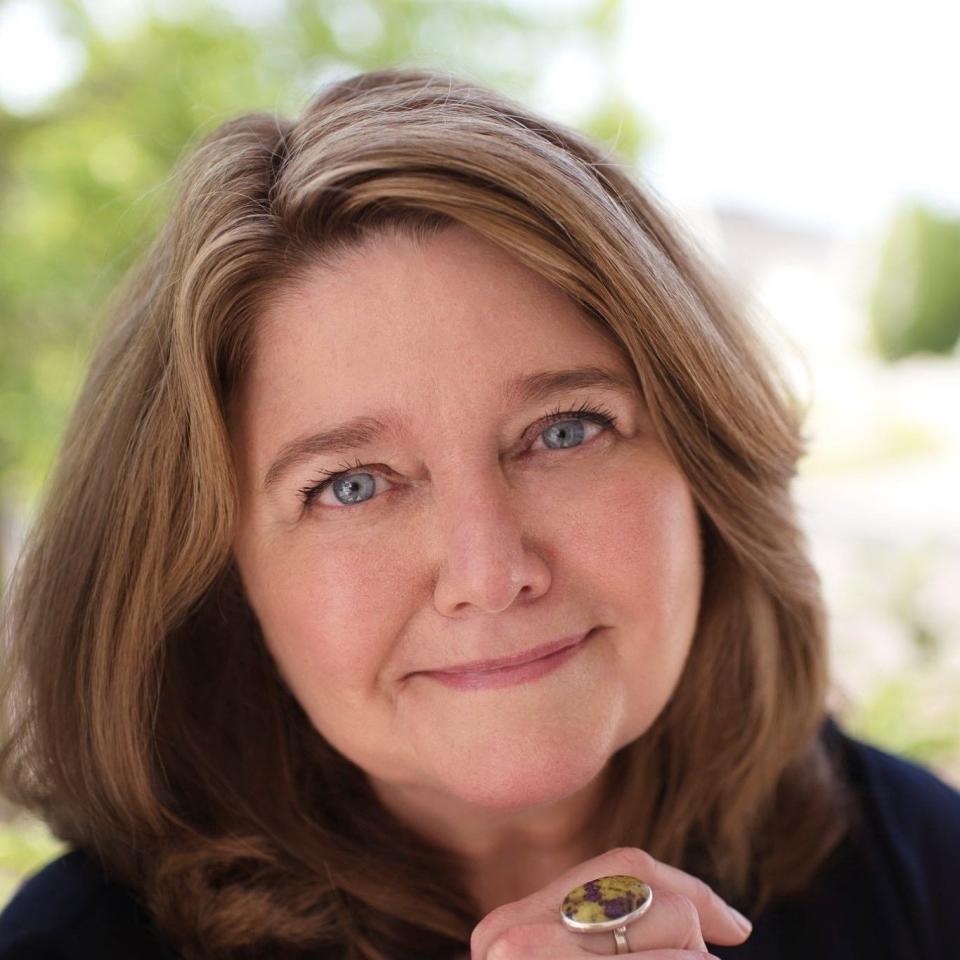The definition of true patriotism: We continue the work to make America better
On July 3, around 2 p.m., my friend Matt Mendelsohn shared a holiday post on Facebook:
“Don’t concede the Fourth to the folks trying to destroy the nation. It’s our country. (I was going to say, ‘It’s our country, too,’ but the ‘too’ implies lesser status that doesn’t exist.) It’s our country.”
It was the parenthetical part of his message that struck me.
In recent years, I have frequently insisted, privately and in public, that America is “our country, too.” Always, I am attempting to contrast my sense of patriotism to the harmful brand inflicted by right-wing extremists. But as Matt has helped me see, phrasing it that way sounds less defiant than it does defensive and powerless.
How do we define patriotism?
I feel this so acutely in the wake of recent Supreme Court decisions, and the gun violence that is now regularly shattering lives in communities across the country. Less than 24 hours after my friend Matt’s holiday post, a gunman killed seven people and wounded nearly 40 at an Independence Day parade in Highland Park, Illinois.
Opinions in your inbox: Get exclusive access to our columnists and the best of our columns every day
What does it mean to be a patriot now?
I am not critical of those who declare they cannot and will not fly an American flag now. I do not question the loyalty of those who say they are ashamed to be citizens of this country. What I ask is that we stay in the fight for it. America is not ours to take back. It is ours to hold to its promises.

For nearly two decades, I have shared the late Rev. William Sloane Coffin’s definition for the true patriot: "There are three kinds of patriots, two bad, one good. The bad ones are the uncritical lovers and loveless critics. Good patriots carry on a lover's quarrel with their country, a reflection of God's lover's quarrel with all the world."
This July 4, I pledge allegiance: It took two wars to make me an American
In the past, it was usually readers on the right who objected to this notion that a true patriot never stops wanting its country to be a better version than the one we are inhabiting. These days, however, I am just as likely to be excoriated by those on the left because God showed up. Lots of analogies to unicorns and fairy tales.
“There is no place for religion in government,” they insist.
“Agreed,” I just as strongly insist.
As I try to explain, Coffin was a minister. One might expect that he would bring up God at some point. He was friends and a fellow civil rights activist with the Rev. Martin Luther King Jr., who frequently referred to his faith. One of my favorite King quotes on this: “In the midst of outer dangers I have felt an inner calm and known resources of strength that only God could give. In many instances I have felt the power of God transforming the fatigue of despair into the buoyancy of hope."
Let’s move along. I want to share another story about my friend Matt. He is a photographer in the Washington, D.C., area, which is how I met him.
Are we trying to destroy America?: Donald Trump and Tucker Carlson vs. Ronald Reagan and George H.W. Bush
On Election Night in 2008, Matt had not been a photojournalist for seven years, but as I wrote in a column days later, his passion for documenting important moments in history had not expired with his press pass. He watched the coverage of Barack Obama’s historical victory unfolding, and he grew increasingly antsy.
"I used to cover things and think that someday I'd tell my daughter, 'Daddy covered that,' " he told me. "But this time, I wanted to be able to tell her, 'Daddy was there.' "
Finally, about 11 p.m., Matt turned to his wife, Maya, and said, "I've got to go out and shoot."
He ended up at the Lincoln Memorial, where he found about two dozen people gathered on the marble steps, listening to Obama’s speech on a transistor radio. He sent a photo to The New York Times, which published it on Nov. 5, along with a brief narrative written by Matt.

As soon as I saw that photo, I had to know more about it, and the man who made it. I called Matt for an interview, and we’ve been friends ever since. Lucky me.
Photo reminds me of what America can be
A framed print of Matt’s photo of that night at the Lincoln Memorial hangs in my home office. It’s one of the first things I see every time I walk to my desk and one of my most cherished belongings. In it, I see another story of America.
Far away from the crowds and mayhem, the televised coverage and internet headlines, a handful of people gathered in the drizzling rain. In the night, they hovered around an antiquated piece of technology to listen to a message of hope for America.

On our worst days, I look at that picture and remember that we were that country, too. On some days, I see a promise that we can be that country, still.
USA TODAY columnist Connie Schultz is a Pulitzer Prize winner whose novel, “The Daughters of Erietown,” is a New York Times bestseller. You can reach her at CSchultz@usatoday.com or on Twitter: @ConnieSchultz
You can read diverse opinions from our Board of Contributors and other writers on the Opinion front page, on Twitter @usatodayopinion and in our daily Opinion newsletter. To respond to a column, submit a comment to letters@usatoday.com.
This article originally appeared on USA TODAY: America doesn't belong to the people trying to destroy it

